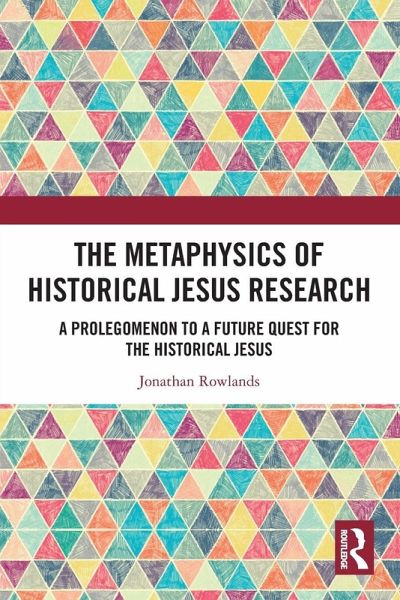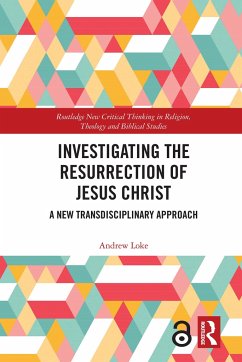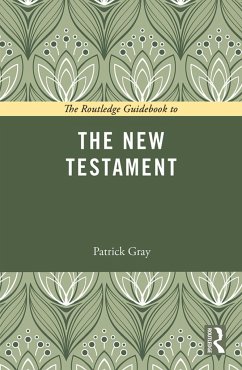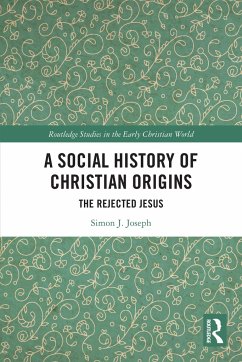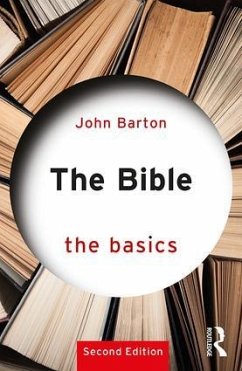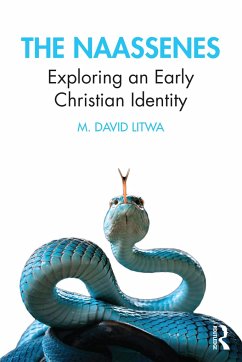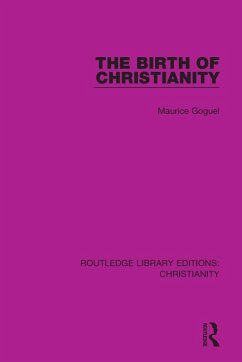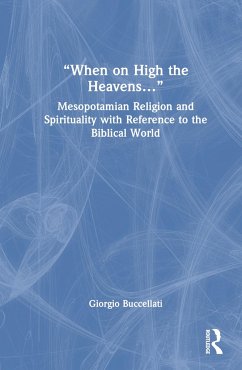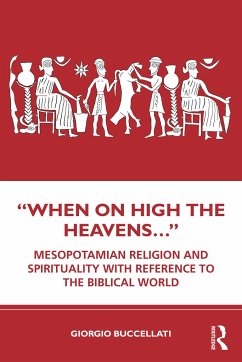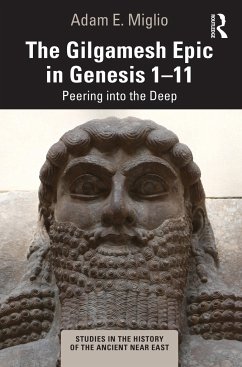"In this ambitious and very well researched book, Jonathan Rowlands goes where most New Testament scholars fear to tread: the metaphysics of historical research. The study should challenge scholars to examine their own commitments, and to scrutinise those of others, when making judgements about how best to understand the historical figure of Jesus." - Jonathan C P Birch, University of Glasgow, UK.
"Rowlands is right that metaphysical presuppositions inescapably guide all historiography. He is also right that many New Testament scholars have been naïve about their methods and what follows from them. While I do not end up in quite the same place, The Metaphysics of Historical Jesus Research has given me much
to ponder, and I heartily endorse Rowlands' plea for an authentic plurality, for allowing a multiplicity of metaphysical frameworks to operate freely within our discipline." - Dale C. Allison, Jr., Richard J. Dearborn Professor of New Testament, Princeton Theological Seminary
"In this stimulating book Jonathan Rowlands uncovers what he terms the secular metaphysics undergirding modern historical Jesus research, arguing that the monopoly of such a perspective has had a deleterious effect upon the field. While accepting the need for such a perspective, Rowlands argues the case for a plurality of metaphysical frameworks within such historical enquiry, including an avowedly theological one. In what is a striking work of 'meta-criticism', Rowlands, who displays an enviable literacy in philosophy and theology as well as New Testament studies, lays bare the often unstated assumptions of a scholarly industry, while in suggestive mode, proposing a new, but complementary, Christian historiography. Whether in agreement or in disagreement, all those who read this book will learn much and ponder even more." - James Carleton Paget, Reader in New Testament Studies, Faculty of Divinity, University of Cambridge
"Rowlands' book is a long overdue methodological intervention in Historical Jesus scholarship. He articulates and provides carefully argued and cogent reasons to think thoughts I have often had, however inchoately. His 'From Reimarus to Wright' may prove a watershed contribution to the intellectual inquiry into the central subject of our discipline. Certainly, though not always easy, his challenge should be faced by all serious historical Jesus scholarship." - Crispin Fletcher-Louis, Visiting Research Fellow, University of Gloucestershire
"Calling the guild of historical Jesus scholars to examine the metaphysical presuppositions of their endeavors, Rowlands' work is an arresting and exhilarating intellectual journey. Exposing the secular underpinnings of historical Jesus research, Rowlands presents a compelling vision of how historical research into the New Testament can be more capacious and hospitable of theological worldviews. This work will be valued by historical Jesus researchers, and all those who seek to bring together biblical reasoning with theological reasoning." - Angus Paddison, Acting Deputy Vice-Chancellor and Reader in Theology, University of Winchester
"This is an extremely impressive, lucidly argued and articulated, clarion call. Rowlands doesn't hide behind obfuscation or couch his important claims in inaccessible sophistry, but with enviable clarity maintains a simple yet important argument: historical Jesus scholarship has proceeded under the banner of an often unarticulated secular metaphysical substructure. This is so not only for the Hector Avalos' of this world, but also for purported Christian/evangelical treatments as proffered by N.T. Wright. Rowlands seeks to scrutinize the metaphysical underpinning of historiographical practices in this important book, and sheds light on an area often left in the dark. It is without question that he is absolutely correct in his contention that the assessment of historical plausibility, cause and effect and such like are not metaphysically neutral, and he is absolutely correct that faith in the risen Jesus raises fascinating questions at the moment prior to historiography, namely metaphysics. But this is no theological triumphalism! Rowlands wants both/and, so this is a welcome contribution to scholarly discourse, and sits proudly next to other recent treatments such as those penned by Sam Adams and Seth Heringer. What makes this work particularly important is its focus on 'historical Jesus' scholarship as well as its astonishing clarity. I heartily endorse this volume and hope that it will deservedly stimulate important discussion in the years to come." - Chris Tilling, Head of Research and Senior Lecturer in New Testament Studies, St. Mellitus College
"Rowlands' study patiently and insightfully surfaces fundamental questions about the ways in which real, operative, yet regularly unreflective metaphysical commitments orient and channel our exercise of historical imagination, judgment and insight in the study of fundament questions of Christian origins. By calling upon historians of early Christianity to acknowledge the need to make explicit, scrutinize, and dispute over these very commitments, he properly invites a better, self-critical and more sophisticated understanding and practice of the discipline of history in biblical studies." -
Philip G. Ziegler, Chair in Christian Dogmatics, University of Aberdeen"Rowlands in
The Metaphysics of Historical Jesus Research has the audacity to combine two things biblical scholars and historians have consistently kept apart: historiography and metaphysics. After demonstrating that every historical investigation is shaped by metaphysical presuppositions, he concludes that the methodological neutrality sought by historical Jesus studies has been an impossible goal. Instead, all three quests for the historical Jesus have been beholden to secular metaphysical assumptions. To remedy this rejection of a Christian worldview, Rowlands offers the beginnings of a Christian historiography based on a series of metaphysical commitments centered on the historical reality of Jesus's resurrection. Rowlands adds his voice to a growing chorus of biblical scholars and theologians who are rejecting historiography as it is currently practiced and pushing for more specifically Christian approaches. This book is a most welcome addition to that project and worth a thorough exploration." -
Seth Heringer, Assistant Professor of Theology and Scripture, Toccoa Falls College